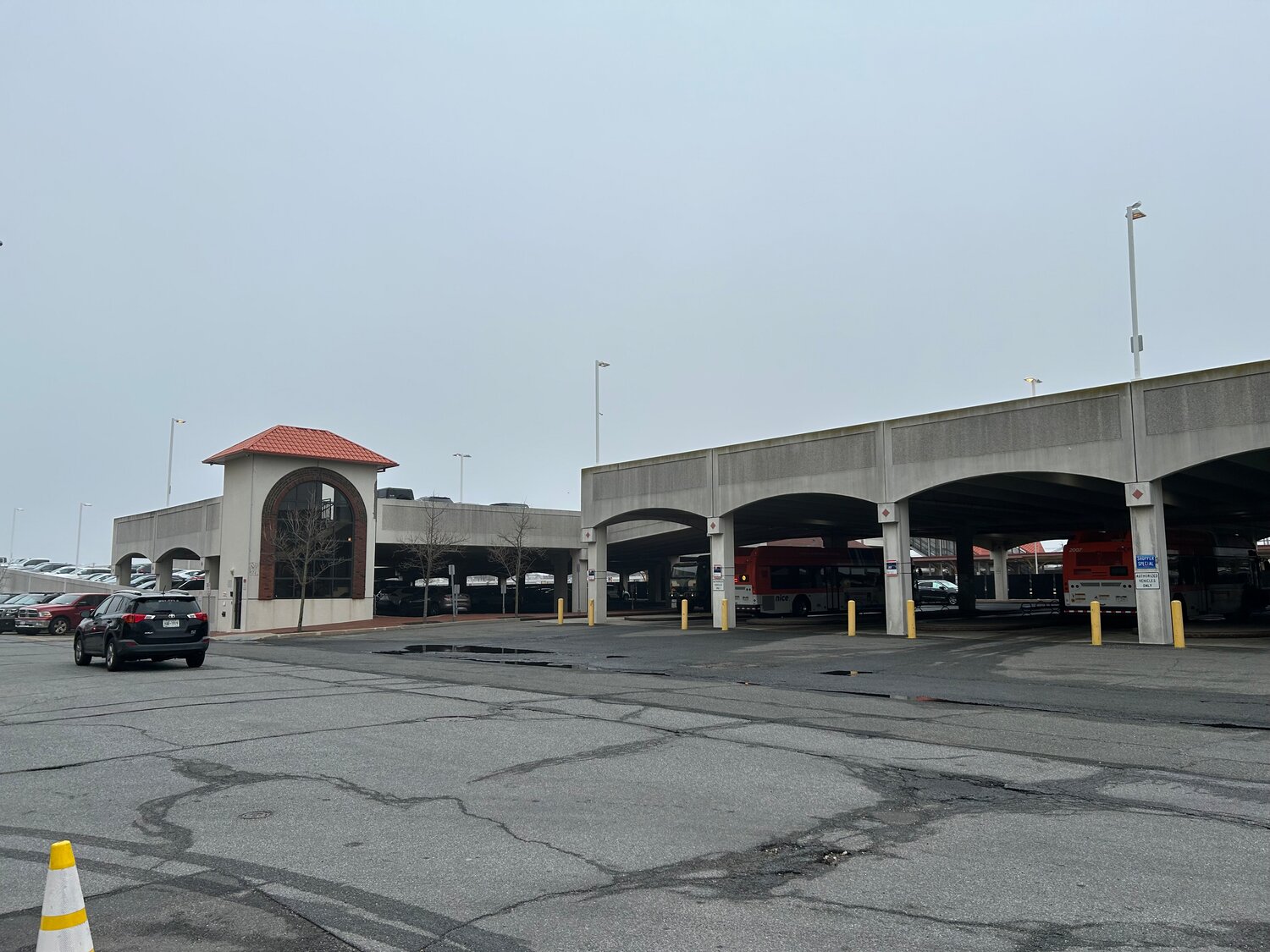Improvements to Long Beach's LIRR garage are coming this month
The Long Island Rail Road station in Long Beach was built in 1880. Because of some damage and wear to the rails, the LIRR petitioned the New York State Public Service Commission to move the station about 1,000 feet north in January of 1909.
The project was approved, and the present station was built that June. It underwent major renovations in the late 1980s, adding the store inside where snacks and beverages are sold.
For years the station had an adjacent street lot where commuters parked when they took the train to work. Then, in 2002, an attached parking garage was built, along with the bus depot and platform bridge.
“As a guy who was on the railroad quite a bit over the last 40 years, I’ve certainly seen the ups and downs of the railroad station,” City Council President Brendan Finn said. “The introduction of the parking garage, which was obviously great, and then, of course, how things go in peaks and valleys. Sometimes things are going great and sometimes they’re not going so great.”
Residents have been expressing their concerns about the garage and other features of the station to city officials. They have complained about smells, aesthetics and safety, among other things. In response, the city began working on the facility late last month. City workers have finished repainting the stairwells and platform bridge, and have been power-washing the stairwells every week. Some of the lighting has been repaired.
Along with the cosmetic changes, there is also an increased police presence in the area. Some residents say they are concerned about safety and having their bikes stolen, specifically from the bus depot bike racks.
“I empathize, and certainly understand firsthand the issues that many of the commuters and local residents have with the garage,” Finn said. “As a person who was on that train, and had a bike stolen once or twice, these kind of things can really rankle, so we hear what the community has to say, and we do our best to respond to that. I think we’re doing a good job. I think we’re moving in the right direction.
“It’s nice to see the police officers when you get off the train or when you get on the train in the morning, because we have to work on some of the other quality-of-life issues that exist there,” Finn added. “We can paint and we can clean and we can upgrade and we can do all sorts of good structural improvements, but we also have to take care of the quality-of-life issues that exist.”
In addition to the police officers that patrol the area, a beach maintenance employee roams the garage, bus depot and platform bridge and monitors the cleanliness of the area.
“Beach maintenance was doing the painting there,” city spokesman John McNally said, “and the name ‘beach maintenance’ is a little deceptive, because they work all throughout the city. But we have an employee who is there, basically from sunup till sundown, making sure it’s clean, making sure that they establish a physical presence there, and that the public and anybody that’s within the facility knows that we have somebody there.”
The city also plans to replace the existing parking meters with higher-tech, app-operated versions from Flowbird, the same company that supplied the current meters. They are expected to be installed by the end of the month.
“There are two separate things,” McNally said. “We’re replacing the meters because we’ve had these ones for the better part of a decade and they have just succumbed to the elements. In addition to replacing them with up-to-date, modernized meters, we’re also going to be rolling out the app.”
Finn addressed the complaint that homeless people have been known to sleep in the stairwells and on the bridge, and he hopes the renovations and the increased monitoring of the areas will help motivate them to find a shelter.
“This is obviously an issue that is front and center in America, not just Long Beach,” he said. “Displacing a homeless person from a stairwell is actually doing them a favor if we could help get them to a shelter. And when I say favor, I don’t mean that in a disparaging way. People don’t want to see their fellow community members in that kind of situation. So we’re going to take care of that. I mean, would I call it displacement? I would say ‘finding a home.’”






